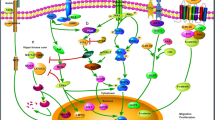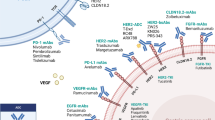Abstract
Background
The recurrence rate of hepatocellular carcinoma (HCC) after partial hepatectomy is still high. How to choose the most appropriate anti-tumor drug in the early postoperative period is crucial to improve the prognosis of patients. Recently, MiniPDX has been widely used as a new and reliable preclinical research model capable of predicting the sensitivities of anti-tumor drugs.
Methods
Twenty-eight patients with HCC were selected to use the MiniPDX model to screen the most sensitive anti-tumor drugs from five groups of drug regimens for preventive treatment after partial hepatectomy, and another 42 patients with HCC were selected to be treated with Sorafenib during the same period as the control group. The tumor-free survival rate and overall survival rate were analyzed and compared between these two groups. The relationship between drug sensitivity and biomarkers related to HCC was also analyzed.
Results
Kaplan–Meier survival curve analysis showed that the tumor-free survival (DFS) of patients in the MiniPDX group was significantly longer than that in the control group (median DFS: 25.8 months vs. 18.2 months, P = 0.022, HR 2.19, 95% CI 1.17–4.12). The overall survival (OS) of the patients in the MiniPDX group was also longer than that in the control group (median OS: 29.4 months vs. 23.8 months, P = 0.039, HR 2.37, 95% CI 1.12–5.00). The longest follow-up period was 36 months. The relationship analyzed between the efficacy of the five drugs (Regorafenib, Regorafenib, Lenvatinib, Gemcitabine, 5-FU + Oxaliplatin) and AFP, Ki-67, VEGFR, FGFR, P53, and Nrf2 showed different correlations.
Conclusion
The use of the MiniPDX model to select drugs to guide anti-tumor treatment after partial hepatectomy could effectively prolong the survival of patients with HCC.





Similar content being viewed by others
Data availability
The datasets used and analyzed during the current study are available from the corresponding author on reasonable request.
References
Bray F, Ferlay J, Soerjomataram I et al (2018) Global cancer statistics 2018: Globocan estimates of incidence and mortality worldwide for 36 cancers in 185 countries [J]. CA: Cancer J Clin 68(6):394–424
Kulik L, El-Serag HB (2019) Epidemiology and management of hepatocellular carcinoma [J]. Gastroenterology 156(2):477-491 e471
Hernandez MC, Bergquist JR, Leiting JL et al (2019) Patient-derived xenografts can be reliably generated from patient clinical biopsy specimens [J]. J Gastrointest Surg: Off J Soc Surg Aliment Tract 23(4):818–824
Malaney P, Nicosia SV, Dave V (2014) One mouse, one patient paradigm: new avatars of personalized cancer therapy [J]. Cancer Lett 344(1):1–12
Tentler JJ, Tan AC, Weekes CD et al (2012) Patient-derived tumour xenografts as models for oncology drug development [J]. Nat Rev Clin Oncol 9(6):338–350
Huynh H, Ong R, Soo KC (2012) Foretinib demonstrates anti-tumor activity and improves overall survival in preclinical models of hepatocellular carcinoma [J]. Angiogenesis 15(1):59–70
Zhang F, Wang W, Long Y et al (2018) Characterization of drug responses of mini patient-derived xenografts in mice for predicting cancer patient clinical therapeutic response [J]. Cancer Commun 38(1):60
Zhan M, Yang RM, Wang H et al (2018) Guided chemotherapy based on patient-derived mini-xenograft models improves survival of gallbladder carcinoma patients [J]. Cancer Commun 38(1):48
Cwinn M, Molinari M (2016) Regional variations in treatment modalities for hepatocellular carcinoma in Canada [J]. Hpb 18:e196–e197
Raza A, Sood GK (2014) Hepatocellular carcinoma review: current treatment, and evidence-based medicine [J]. World J Gastroenterol 20(15):4115–4127
Llovet JM, Bruix J (2008) Molecular targeted therapies in hepatocellular carcinoma [J]. Hepatology 48(4):1312–1327
Rimassa L, Santoro A (2009) Sorafenib therapy in advanced hepatocellular carcinoma: the sharp trial [J]. Expert Rev Anticancer Ther 9(6):739–745
Khandelwal G, Girotti MR, Smowton C et al (2017) Next-generation sequencing analysis and algorithms for pdx and cdx models [J]. Mol Cancer Res: MCR 15(8):1012–1016
Koga Y, Ochiai A (2019) Systematic review of patient-derived xenograft models for preclinical studies of anti-cancer drugs in solid tumors [J]. Cells 8(5):418
Zhao P, Chen H, Wen D et al (2018) Personalized treatment based on mini patient-derived xenografts and wes/rna sequencing in a patient with metastatic duodenal adenocarcinoma [J]. Cancer Commun 38(1):54
Cheng A-L, Finn RS, Qin S et al (2017) Phase iii trial of lenvatinib (len) vs sorafenib (sor) in first-line treatment of patients (pts) with unresectable hepatocellular carcinoma (uhcc) [J]. J Clin Oncol 35(15_suppl):4001–4001
Llovet J, Cheng A, Qin S et al (2019) 6519 efficacy and safety of sorafenib in patients with advanced hepatocellular carcinoma (hcc): collective results from the phase III sorafenib HCC assessment randomized protocol (sharp) and Asia-Pacific (AP) trials [J]. Eur J Cancer Suppl 7(2):367
Llovet JM (2008) Sorafenib in advanced hepatocellular carcinoma [J]. N Engl J Med 359(23):2498 (author reply 2498–2499)
Ikeda M, Mitsunaga S, Ohno I et al (2015) Systemic chemotherapy for advanced hepatocellular carcinoma: Past, present, and future [J]. Diseases 3(4):360–381
Kudo M, Trevisani F, Abou-Alfa GK et al (2016) Hepatocellular carcinoma: therapeutic guidelines and medical treatment [J]. Liver cancer 6(1):16–26
Qin S, Cheng Y, Liang J et al (2014) Efficacy and safety of the folfox4 regimen versus doxorubicin in Chinese patients with advanced hepatocellular carcinoma: a subgroup analysis of the each study [J]. Oncologist 19(11):1169–1178
Ikeda M, Morizane C, Ueno M et al (2018) Chemotherapy for hepatocellular carcinoma: current status and future perspectives [J]. Jpn J Clin Oncol 48(2):103–114
Raghunath A, Sundarraj K, Arfuso F et al (2018) Dysregulation of nrf2 in hepatocellular carcinoma: role in cancer progression and chemoresistance [J]. Cancers 10(12):481
He C, Li L, Guan X et al (2017) Mutant p53 gain of function and chemoresistance: the role of mutant p53 in response to clinical chemotherapy [J]. Chemotherapy 62(1):43–53
Acknowledgements
We appreciate Dr. Wen Danyi (LIDE Biotech Inc.) for providing technical support on MiniPDX models.
Funding
This work was supported by the Foundation of Tianjin Science and technology plan project (19ZXDBSY00010), Key projects of Tianjin Health Industry (16KG108).
Author information
Authors and Affiliations
Corresponding author
Ethics declarations
Conflict of interest
All authors declare that they have no conflict of interests.
Additional information
Publisher's Note
Springer Nature remains neutral with regard to jurisdictional claims in published maps and institutional affiliations.
Rights and permissions
About this article
Cite this article
Yang, L., Yuan, Z., Zhang, Y. et al. MiniPDX-guided postoperative anticancer treatment can effectively prolong the survival of patients with hepatocellular carcinoma. Cancer Chemother Pharmacol 87, 125–134 (2021). https://doi.org/10.1007/s00280-020-04182-1
Received:
Accepted:
Published:
Issue Date:
DOI: https://doi.org/10.1007/s00280-020-04182-1




